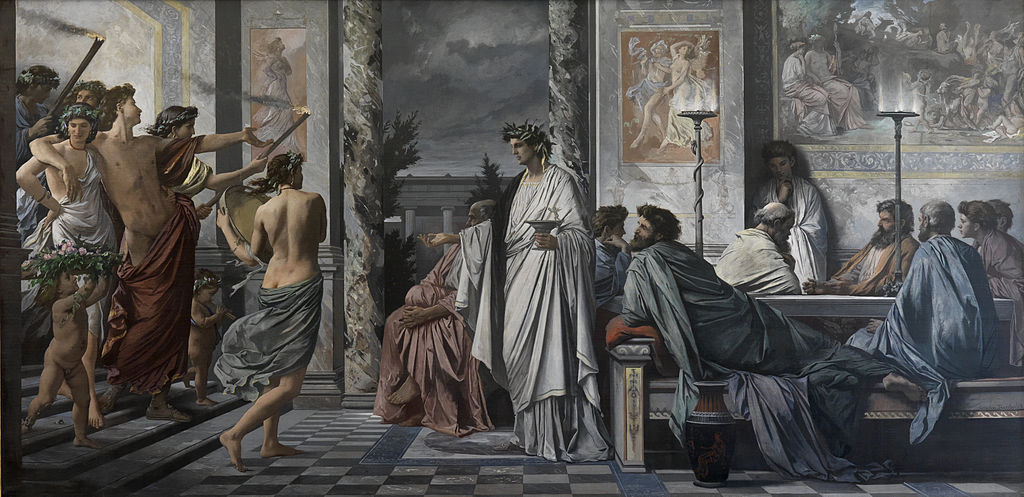Hey Hey, Ho Ho: Does Western Civ Have to Go?
Is colonialism a bad thing? It is fashionable to think so, and with good reason. Genocide, racism, slavery, depredation, epidemics, cultural inferiority complexes, etc., are all traceable to Europe’s colonial expansion beginning in the 16th Century. It would be naïve to think it is over, even if the United Nations’ list of non-self-governing territories is rather short. Colonialism persists. Whether it is America invading Iraq to get its oil, or Nike setting up sweatshops in Bangladesh, colonialism is alive and kicking, and it continues to cause great damage to people of color.
Yet, many anti-colonialist freedom fighters tacitly understood that the ideals they were fighting for (principally, equality), were of European origin. Simon Bolivar was a child of the Enlightenment; Jawaharlal Nehru defended Western secularism, Patrice Lumumba always acknowledged the relevance of his Western education. European empires were bad, sure, but unlike previous empires in History, they also exported the very ideology that inspired resistance against colonial domination.
For that very reason, in the old days, most anti-colonialists fought hard to resist colonial domination in the military, political, and economic realms, but when it came to intellectual influence, they were quite happy to quote Western authors and be immersed in Enlightenment ideals.
Things have changed. The rise of so-called “post-colonial studies” in the sixties set a new standard. Very much influenced by Edward Said’s work, post-colonialists now believed that Western domination of the Third World rested upon intellectual colonialism. Taking cue from Michel Foucault’s philosophy, Said argued that Western education diminishes the non-Western world, and this is a strategic step to demoralize colonized peoples into submission.
Thus, in order to be truly liberated, so the argument goes, it is necessary to resist colonialism in the classroom. Universities need to be decolonized. The self-esteem of non-Westerners must be recovered. People of color need to learn about their own past glories, and appreciate their own heritage. This is basically the approach of post-colonialist gurus such as Boaventura de Sousa Santos, Enrique Dussel, Hamid Dabashi, Shriv Vishvanathan and others. According to them, to teach the Western canon to colonized students is “epistemic violence”.
These ideas were well intentioned at first, but ultimately, have led to disastrous consequences. For example, in the name of multicultural education, some pseudo-scholars began to promote Afrocentrism. According to this movement, Cleopatra was black and Europeans stole philosophy from Africans. These claims led to some intense debates in academic circles; today, the overwhelming consensus is that Afrocenstrism’s claims are bogus. Yet, Afrocentrists insist on promoting their discredited theories, not on the basis of their veracity, but rather, on the basis of their use to fight colonialism and racism.
The struggle to resist intellectual colonialism eventually led Jesse Jackson and other leaders to chant “Hey hey, ho ho, Western civ has got to go!” throughout American campuses in the 80s and 90s. To the horror of eminent liberal philosophers, such as John Searle, activists required Homer, Aristotle, Locke, and other “dead white males” to be taken off from curricula.
The movement did not catch on, but every once in a while, it makes a comeback. This month, students from the School of Oriental and African Studies in London, requested that “figures such as Plato, Descartes and Immanuel Kant should be largely dropped from the curriculum because they are white.”
From an ethical point of view, this is very worrisome. To think that teaching about the myth of the cavern is an offense comparable to, say, flying the Confederate flag, is a sign of the profound intellectual crisis Western universities are going through. This is identity politics taken to its worst possible level. Skin color, it seems, matters more than ideas.
The great flaw of multiculturalism is its failure to appreciate the universality of good things. Multiculturalists’ obsession with diversity forbids them from understanding that Plato, Kant and Descartes made contributions relevant to all human beings. Yes, they were white males, but their ideas are universal in scope. Regardless of cultural differences, there are great advantages to asking whether an evil genius is generating an illusion in my mind (Descartes’ philosophy), or whether I should lie to a murderer asking where my friend is (Kant’s philosophy). As the old-fashioned anti-colonialist freedom fighters well understood, these ideas were precisely the intellectual ammunition to put an end to the injustices of colonialism and make the world a better place; these ideas were not by any means “epistemic violence”.
To request the removal of Plato, Descartes and Kant from university curricula is dangerous for at least two reasons. First, it basically amounts to the dumbing down of academia. Reading The Republic or The Critique of Pure Reason is hard work, but it is ultimately satisfying. Students seem to have found a cheap excuse to go down the easy way, all in the name of multiculturalism and postcolonialism.
And second, it encourages an unhealthy level of identity politics, which can backfire. If philosophers are valued not because of their ideas, but because of their race, then eventually voters will also elect candidates on the basis of skin color. To a large degree, Donald Trump blew the dog whistle to white voters, who got him elected, not because of his absurd proposals, but because of his skin color.
Now that identity politics in the classroom is crossing the Atlantic, and students in London are requesting not to be taught Plato and Kant, European liberals should be concerned. Racism and bigotry got Trump elected, but so did the excesses of political correctness and multiculturalism in the US. To stop the likes of Marianne Le Pen, European liberals should resist the temptation to believe that teaching the Illiad is an act of epistemic violence.





